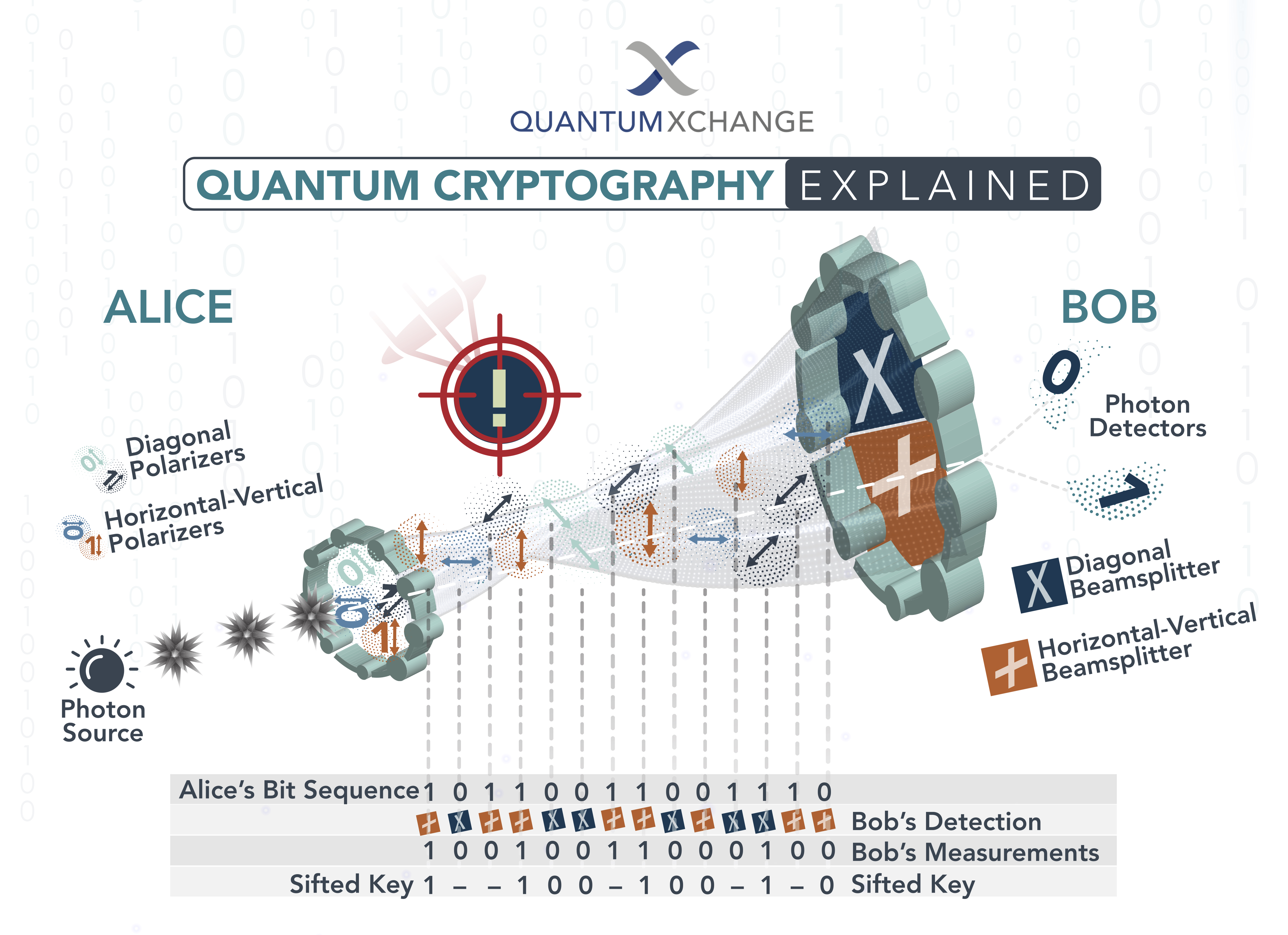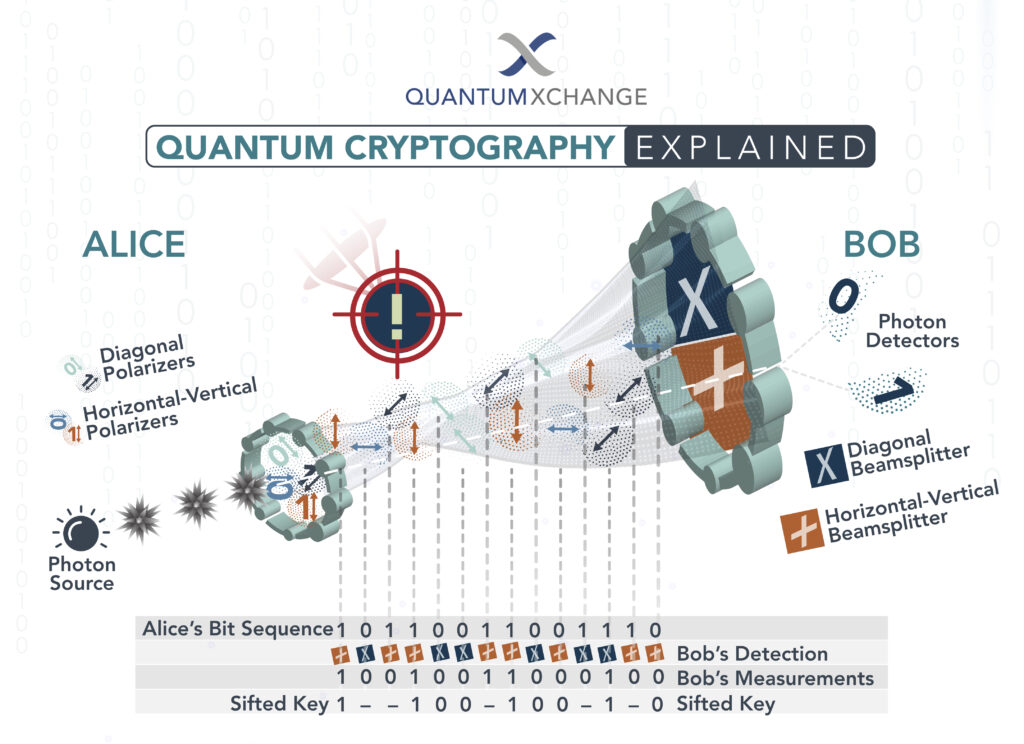Quantum cryptography is a fascinating and rapidly developing field that has the potential to revolutionize the way we communicate and secure our information. With the rise of quantum computers, which are exponentially faster than classical computers, the need for quantum-resistant encryption methods has become increasingly urgent. Learning about quantum cryptography can be a challenging task, but with the right approach and resources, anyone can grasp the fundamental concepts and techniques.
Whether you’re a student, a researcher, or a professional in the field of cybersecurity, learning quantum cryptography can open up exciting opportunities for you. In this guide, we will explore the basics of quantum cryptography, including its underlying principles, applications, and current research. We’ll also provide you with tips and resources to help you get started on your journey towards mastering this fascinating field. So, let’s dive in and discover how to learn quantum cryptography!
Quantum cryptography is a cutting-edge technology that uses the principles of quantum mechanics to secure data. To learn quantum cryptography, start by researching the basics of quantum mechanics, such as the difference between classical and quantum cryptography and the mathematical principles behind it. Next, explore the algorithms used in quantum cryptography and learn how they can be used to encrypt data. Finally, experiment with software solutions and hardware devices that are compatible with quantum cryptography.
- Research the basics of quantum mechanics.
- Explore quantum cryptography algorithms.
- Experiment with quantum cryptography software and hardware.

What is Quantum Cryptography?
Quantum cryptography is an emerging field of cryptography that uses the principles of quantum mechanics for secure communication. It is a secure means of communication that uses quantum-mechanical properties such as entanglement and superposition to prevent eavesdropping. The principles of quantum cryptography provide an unprecedented level of security, allowing for secure communication over any distance.
How to Learn Quantum Cryptography?
Step 1: Learn the Basics of Cryptography
Before diving into quantum cryptography, it is important to have a good understanding of the basics of cryptography. Cryptography is the practice of using mathematical algorithms to encrypt and decrypt data. Cryptography is used to protect data from unauthorized access and to ensure data integrity. To understand how quantum cryptography works, it is important to have a firm grasp on the fundamental principles of cryptography.
Step 2: Understand the Principles of Quantum Mechanics
The principles of quantum mechanics are essential to understanding how quantum cryptography works. Quantum mechanics is the study of the behavior of particles at the atomic and subatomic level. It is a branch of physics that studies the behavior of matter and energy at the smallest scales. To understand how quantum cryptography works, it is important to have a good understanding of the principles of quantum mechanics.
Step 3: Learn About Quantum Cryptography
Once you have a firm understanding of the fundamentals of cryptography and the principles of quantum mechanics, you can start to delve into the specifics of quantum cryptography. Quantum cryptography is a branch of cryptography that uses quantum-mechanical properties such as entanglement and superposition to secure communication. It provides an unprecedented level of security, allowing for secure communication over any distance.
Step 4: Research Quantum Cryptography Algorithms
Once you have a good understanding of the fundamentals of quantum cryptography, you can start to research the various quantum cryptography algorithms. Quantum cryptography algorithms are mathematical algorithms that are used to encrypt and decrypt data. There are a variety of quantum cryptography algorithms, and it is important to research and understand the various algorithms to ensure secure communication.
Step 5: Practice Quantum Cryptography
The best way to learn quantum cryptography is to practice it. There are a variety of tools and resources available to help you practice and hone your skills. You can use simulation software to practice quantum cryptography or take online courses to learn more. Practicing quantum cryptography will help you understand the fundamentals and gain a better understanding of how it works.
Step 6: Join the Quantum Cryptography Community
Finally, it is important to join the quantum cryptography community. The quantum cryptography community is an online community of experts and enthusiasts who share their knowledge and experience with quantum cryptography. Joining the community is a great way to stay up to date with the latest developments in quantum cryptography and to connect with other experts.
Frequently Asked Questions about Quantum Cryptography
Quantum cryptography is a method of secure communication which uses quantum states of light or matter to send and receive encrypted messages. This technology is highly secure and virtually unbreakable, making it an ideal choice for those who need to send and receive data securely.
What is quantum cryptography?
Quantum cryptography is a new technology which uses the principles of quantum mechanics to encrypt data. It works by using single photons, or particles of light, as the “keys” to unlock the encryption. This makes it virtually impossible to break the encryption, as any attempt to measure the single photon will change its quantum state, rendering the key useless. This makes quantum cryptography one of the most secure forms of encryption available.
What is the advantage of quantum cryptography?
The main advantage of quantum cryptography is that it is virtually unbreakable. This makes it ideal for those who need to send and receive sensitive data securely. It is also extremely secure and reliable, as any attempt to measure the single photon will render the encryption key useless. This makes it impossible for anyone to intercept or decrypt the data without the sender’s permission.
How does quantum cryptography work?
Quantum cryptography works by using single photons, or particles of light, as the “keys” to unlock the encryption. The sender and receiver both have a copy of the encryption key, and they use it to encrypt and decrypt the data. When the sender sends the data, they also send along the single photon, which acts as the “key” to unlock the data. When the receiver receives the data, they use the single photon to decrypt it. This makes it impossible for anyone else to decrypt the data without the sender’s permission.
How secure is quantum cryptography?
Quantum cryptography is extremely secure and reliable. As mentioned before, any attempt to measure the single photon will render the encryption key useless, making it impossible for anyone to intercept or decrypt the data without the sender’s permission. This makes quantum cryptography one of the most secure forms of encryption available.
How can I learn quantum cryptography?
Learning quantum cryptography can be done in a variety of ways. One way is to take an online course, which can provide a comprehensive introduction to the technology and its applications. Another way is to read books and articles on the subject, which can provide a deeper understanding of the technology and its uses. Finally, you can also attend conferences and workshops to learn more about quantum cryptography and network with other professionals in the field.
In conclusion, quantum cryptography is an exciting and challenging field that requires a deep understanding of quantum mechanics and cryptography. Learning quantum cryptography can be a daunting task, but with the right resources and dedication, anyone can master this fascinating topic. Whether you are a student, researcher, or professional, there are many ways to learn quantum cryptography, including online courses, textbooks, research papers, and seminars.
To become a proficient quantum cryptographer, you must be familiar with the fundamental concepts of quantum mechanics, such as superposition, entanglement, and measurement. You should also have a solid grasp of the principles of cryptography, such as encryption, decryption, and key exchange. By combining these two fields, you can develop secure communication protocols that are resistant to eavesdropping and hacking. With the growing need for secure communications in the digital age, quantum cryptography is becoming more important than ever, and mastering this subject can open up a world of opportunities in academia, industry, and government.


